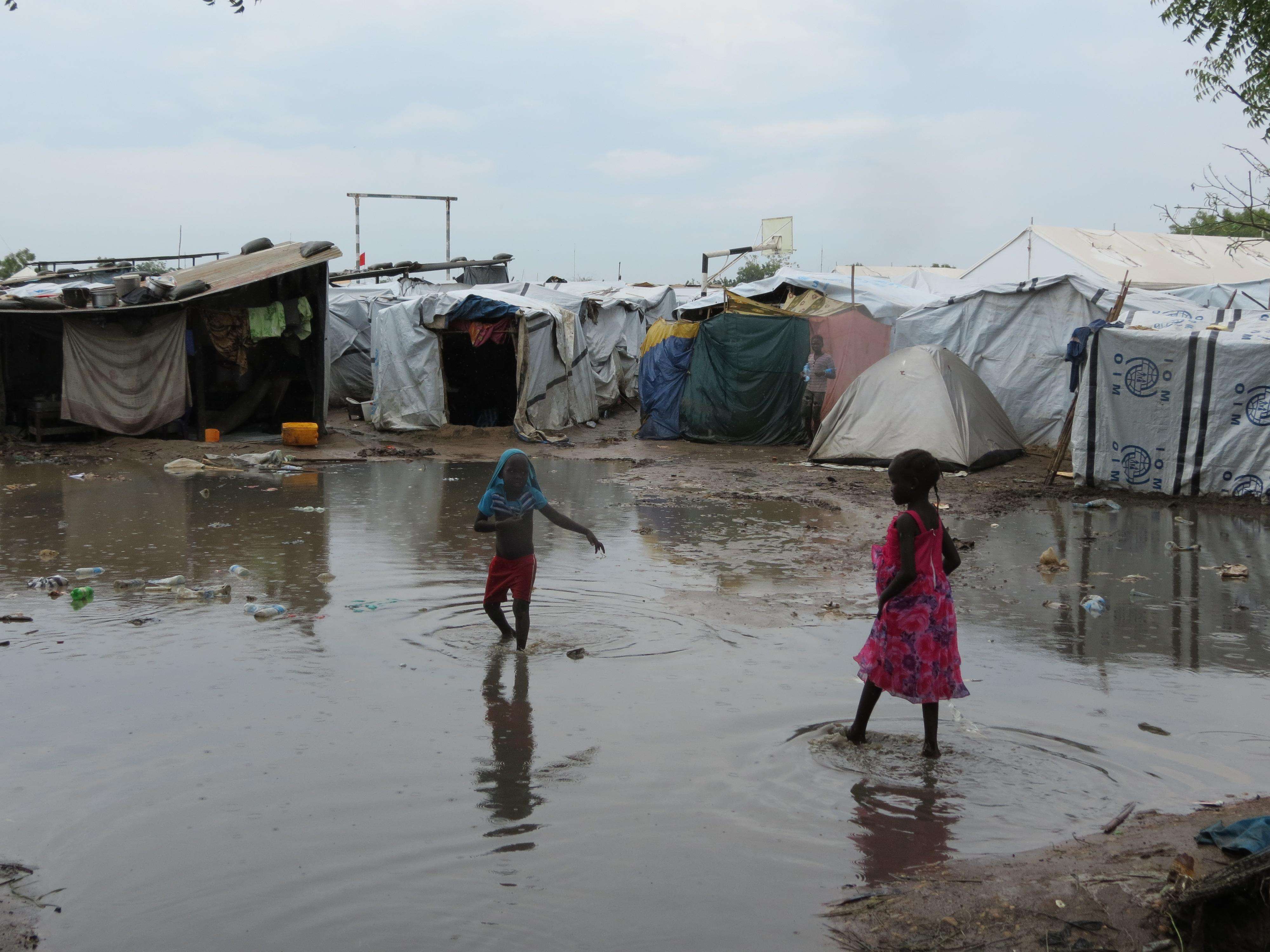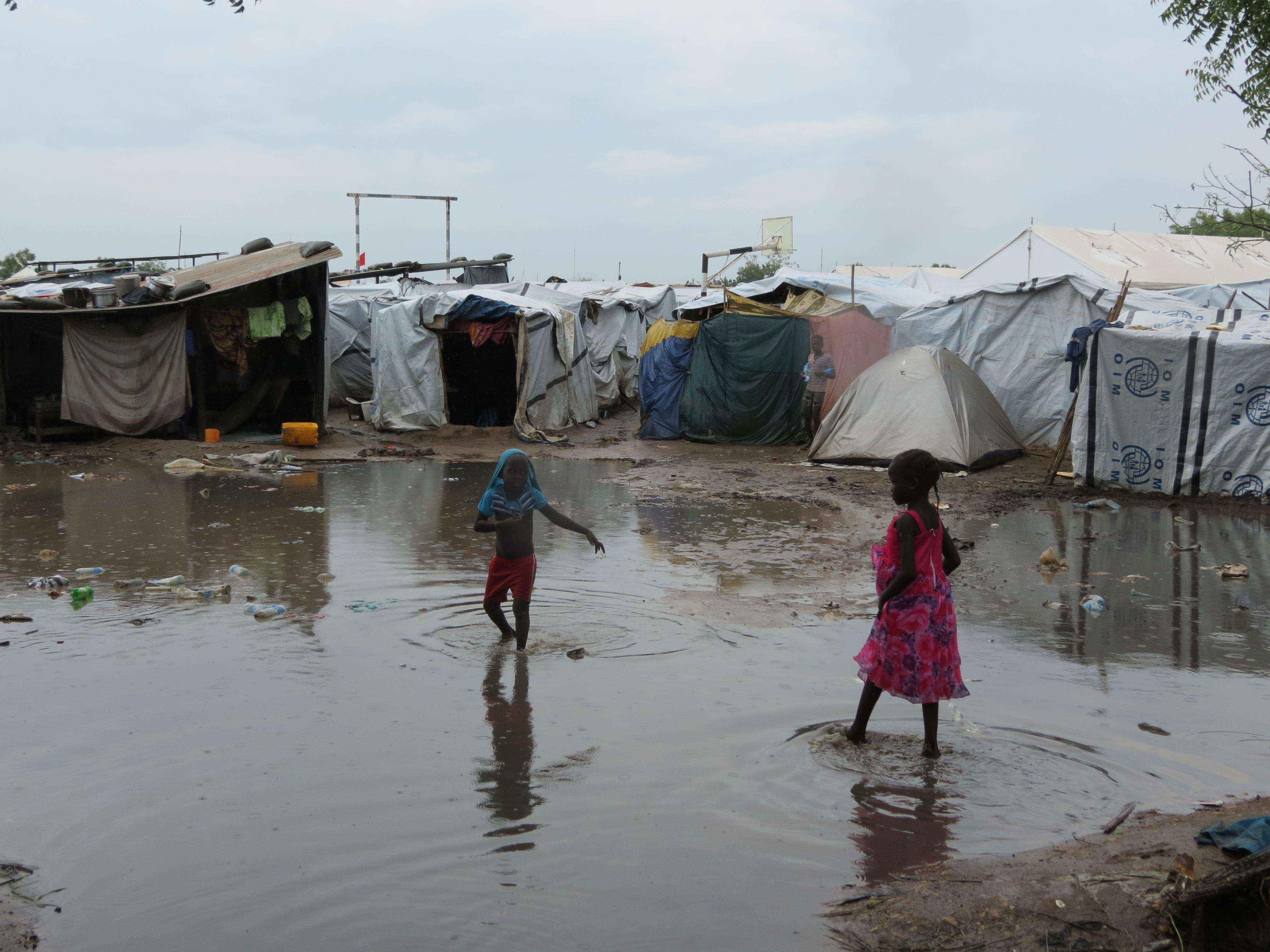NEW YORK—In a shocking display of indifference, senior officials with the United Nations Mission in South Sudan (UNMISS) have refused to improve living conditions for 21,000 displaced people living in a flood-prone part of a UN peacekeeping base in the capital Juba, where they are exposed to waterborne diseases and potential epidemics, the international medical humanitarian organization Doctors Without Borders/Médecins Sans Frontières (MSF) said today.
The displaced people in the Tomping camp are crowded into low-lying parts of a UN compound prone to flooding. Diarrheal diseases, respiratory infections, and skin diseases already account for more than 60 percent of the cases seen at MSF's clinic in the camp, before the rainy season has begun in earnest. Despite repeated requests from humanitarian organizations, UNMISS is taking no action in Tomping to improve the chances of survival. MSF is questioning the UN's commitment to meeting the needs of South Sudan's most vulnerable people, hundreds of thousands of whom have been displaced by conflict since December 2013.
"The UNMISS decision not to improve conditions in Tomping is shameful," said Carolina Lopez, MSF emergency coordinator. "People are living in natural drainage channels because there is no other space. And the rains, which will last the better part of six months, are becoming heavier. If nothing is done right now, the already horrific consequences could become fatal."
During the first rainfall of the season, 150 latrines in Tomping collapsed, their contents mixing with floodwater. Prior to that there were still far too few latrines in the camp, with one per 65 persons. The minimum standard in emergency humanitarian settings is one latrine for 20 persons.
A UN plan to establish an alternative site for the displaced has been mired in implementation delays and is now unrealistic because of the onset of rains. Repeated requests by MSF and other organizations to expand Tomping camp into available non-flooded space within the UN compound, at least as a temporary lifesaving measure, have been inexplicably refused.
"Whether as a permanent or interim solution, expanding the camp into the dry parts of the UN compound must happen immediately," said Lopez.
On April 3, Hilde Johnson, the head of UNMISS, stated that the Tomping camp is "at imminent risk of turning into a death trap." She then announced that it would be closed in May. However, only 1,118 residents have been moved from the camp over the past five weeks to "Juba House," another UNMISS base on the outskirts of the city. Although the plan may have been a valid option one month ago, moving 20,000 people to an unprepared space as seasonal rains begin is unrealistic, MSF said.
"They say there is not enough space in Tomping, but this is a sickening argument when on the other side of the barbed wire from where displaced persons are crowded there are dry parking lots and storage spaces," Lopez said.
Furthermore, many of the camp residents say they would not want to move to Juba House because they would feel less secure there. MSF urges UNMISS to ensure that any movements are voluntary.
Tomping is only the most visible example of the widespread unmet humanitarian needs in South Sudan. Hundreds of thousands of other people are displaced throughout the country, including tens of thousands in other UNMISS camps where MSF is witnessing a disturbing lack of preparedness for the impending floods.
In the UNMISS base at Malakal, in Upper Nile State, provisional MSF medical data indicate alarming mortality rates, while preparations to improve the situation are minimal.
In Minkamman, in Lakes State, some 82,000 people who fled fighting in Bor are living in appalling conditions in an open camp, albeit not in a UN compound. MSF runs four clinics in the camp, carrying out 2,000 consultations per week. The MSF team is very concerned about waterborne diseases due to sanitation gaps in the camp.
Delays related to an inflexible UN system mean that drawn up response plans are often not implemented.
"The UN mission in South Sudan reported to the UN Security Council on March 18 that 'Protection of Civilians' is a key priority," said Jerome Oberreit, MSF Secretary General. "We urge the UN leadership to remember that protection means more than just corralling people in a guarded compound. Adequate living conditions are also essential, and require urgent, pragmatic action. People must be safe from disease as well as safe from violence."





